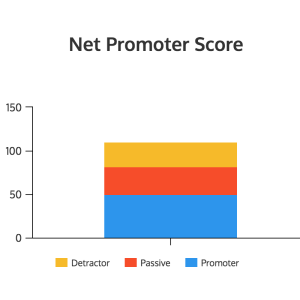
Annuities and 401(k)s are two popular tax-deferred investment vehicles that can provide income in retirement, which is one of the top priorities for the average retiree. However, while they share a set of features and characteristics that make them seem similar, annuities and 401(k) work quite differently, and both have their own set of pros and cons.
The decision whether to invest in annuities, a 401(k) or both, depends mainly on your circumstances and your individual goals for retirement. This post serves as a general guide to understand the differences between these two ways to save for retirement and help you decide which is the best option for you.
What is a 401(k)?
A 401(k) is an employer-sponsored retirement plan that employees can opt into to save for retirement and to invest their savings to make them grow over time. These accounts offer tax benefits in the form of deferred taxes in the case of traditional 401(k) accounts or as tax-free retirement income in the case of Roth 401(k)s.
With a 401(k), your funds will be invested in different types of assets depending on your risk tolerance and the options the provider offers. You won’t get to invest in highly-volatile assets like cryptos, but you will be able to create a diversified portfolio that includes stocks, ETFs, and bonds, to name a few.
401(k) Pros and cons
401(k) Pros
- In a traditional 401(k), your contributions are tax-deductible.
- 401(k)s usually have low associated fees.
- The employer may offer to match employees’ contributions.
- Savings may grow significantly over time.
- If you need money, you can borrow money from your 401(k) without incurring early withdrawal penalty fees.
- You can pass down any unused savings to your spouse or an appointed beneficiary once you die.
401(k) Cons
- There are limits on how much you can contribute to your 401(k). The limit for 2021 is $ 19,500, and for 2022 is set to be $ 20,500.
- It’s a long-term investment, so it might not be appropriate for someone who’s near retirement age.
Because of contribution limits, these investment vehicles are designed to grow slowly over time through small monthly contributions and compounding interests. This means that if you start contributing late in life, you won’t save much before the account reaches maturity.
- The market can fluctuate and cause losses.
401(k)s are investment accounts tied to market performance. Therefore, there is a risk of losing money if the markets underperform.
- You are limited to the available investment options offered by your employer’s 401(k) sponsor.
This means that the allocation of funds can be restricted or guided by your employer’s advisors instead of being completely your choice.
- You have to figure out how best to turn your 401(k) into income.
Most retirees struggle with this, and it produces a considerable amount of stress. However, if done wrong, you could end up outliving your savings or use too little of it and not enjoy the fruits of your work before you die.
What are annuities?
An annuity is a contract between you and a private insurance company. The insurer usually guarantees a set monthly income in retirement for the rest of your life, in exchange for a single lump sum or many small contributions.
Annuities can be simple, or they can become very complex financial instruments depending on the conditions in the contract. Several different types of annuities cater to different needs. The two main types are immediate and deferred annuities.
With an immediate annuity, monthly payments start immediately after paying a single lump sum, usually in the range of $ 100,000+.
With deferred annuities, payments typically start years after the contract starts, allowing you to make smaller contributions throughout years or even decades, similarly to how you would contribute to your 401(k).
Annuity Pros and cons
Annuity Pros
- An annuity can provide a guaranteed stream of income for life, which can be helpful for retirees who are worried about outliving their savings.
- You can buy an annuity with a single lump sum and start receiving payouts right away.
- Most annuities offer tax-deferred growth, just like 401(k)s.
- An annuity offers flexibility that a 401(k) plan will not. For example, in the case of variable annuities, you have greater freedom to choose the assets you want to invest in.
- You can add contract riders to customize your annuity and add long-term care protection, principal protection, and other benefits, albeit at a cost.
Annuity cons
- Annuities are more expensive than 401(k)s.
One of the most significant drawbacks of annuities is that they can be costly. Fees are always higher with annuities than with 401(k)s. In addition to the fees you pay for managing your investments (which are higher in annuities than in 401(k)s), annuity investors must also pay several administrative and insurance fees.
- If you purchase a deferred annuity, the funds are locked in.
Withdrawing early from an annuity incurs surrender charges or fees that can be as high as 10%. Unlike with 401(k)s, there’s no way to avoid these penalties in a base annuity contract. You can add riders to avoid these penalties, but you’ll have to pay extra fees for the rider.
- Fixed annuities generate less monthly income over time.
A 401(k) can make higher payments when the market performs well. On the other hand, fixed annuities do not, so they’ll usually pay less than a 401(k) with a well-performing portfolio.
When does it make sense to stick to your 401(k)?
Most financial advisors recommend contributing as much as possible to your 401(k), especially if your employer matches contributions. Therefore, if you haven’t maxed out your 401(k), it’s better not to think about annuities yet.
Also, if you’re likely to need access to your funds before turning 59.5 years old, a 401(k) is the best choice since you can borrow from it without paying penalty fees. This is something you can’t do with an annuity.
Finally, if you can start saving for retirement early in life, it’s better to do it in a 401(k) because it has more growth potential than an annuity.
When should you choose an annuity?
Annuities are the best choice if you’re near retirement age since you can purchase one with a single payment and start receiving income immediately afterward.
Furthermore, if you’re considerably averse to risk and want to ensure that you won’t outlive your savings, then an annuity is also your best choice.
Finally, rolling over your 401(k) funds to an annuity before minimum distributions kick in on your 401(k) is a way of letting your savings grow for longer while maintaining tax benefits.
It’s sometimes better to choose both
Annuities are the go-to solution if you want to save more tax-deferred income once you’ve maxed out your 401(k). These instruments don’t have a contribution cap like 401(k)s, so you could set aside as much or as little as you want and only pay taxes once you start cashing in.
Some retirees also choose a mix of the two instruments when they want to secure a minimum fixed income (provided by an annuity) and leave a portion of their savings invested in a 401(k), so it continues to grow tax-deferred with potentially higher returns.
The bottom line
One of the most common questions about retirement is which type of product – annuity or 401(k) – retirees should invest in.
The answer to this question depends on your goals for their future and whether you’re looking to supplement another income stream, like Social Security benefits or a pension plan. If you want your money set aside to grow, but so it will be there when you need it, a 401(k) may be right for you.
However, if your goal is to have enough income to live the rest of your life in peace while minimizing risk exposure during market downturns, then investing in an annuity is the better option. In any case, this is an important decision that requires much consideration and weighing the pros and cons based on your particular situation, so the best you can do is learn all you can about both types of investments and seek the help of a financial advisor when in doubt.
Business & Finance Articles on Business 2 Community
(113)
Report Post







